I remember when I saw the final episode of ‘How I Met Your Mother’, the day on which it had originally aired. The series was the first I had fully immersed myself into, after catching an episode on a plane once and later becoming a dedicated viewer. The story surrounding its protagonist Ted Mosby and his search for true love was mostly immersive, well-written, and structured around relatable as well as fleshed-out characters. I was about halfway into my teenage years when the finale came on TV, and perhaps as a result of age-related excitement, I recall my sister and I bought a bunch of snacks and other foodstuffs to celebrate the grand hour-long event.
When the show ended and the credits faded out – the credits here were different in style to all the other episodes – there was this silence. Having the first TV program you felt you were a part of end isn’t very easy to digest. My sister, being a couple of years younger, shed a couple of tears. I wasn’t one to critique what I had seen back then, because I had accepted the show as it had come, but despite enjoying a few bits and being moved emotionally myself, there were still some things about the ending that didn’t sit well with me.
I soon found out that most fans of the show felt this way. Though the two-part episode became the show’s most watched, it also received the title (along with several other episodes from the final season) of ‘the worst the series had ever been’. Due to the strong criticisms the ending of the finale, in particular, started receiving, creators Carter Bays and Craig Thomas announced the release of an alternate version almost immediately after the original had aired. This ending was more widely accepted by the general public, and that very reason is part of what ignited a desire in me to write an article on the ending of the otherwise well-received show.
The Plot
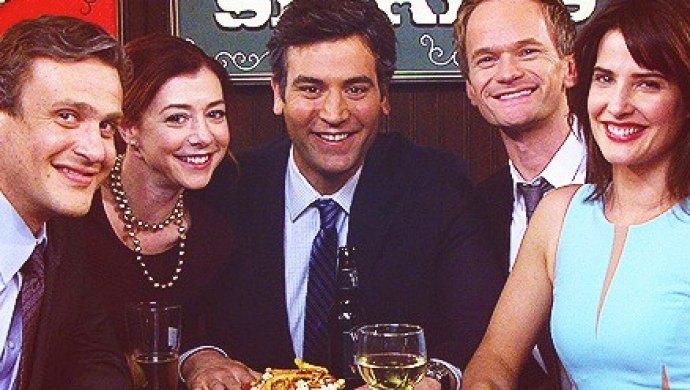
‘How I Met Your Mother’ had a way of going about its storyline that made it stand out. Ted from the future (voiced by Bob Saget) narrated his love life in segmented flashbacks, and so, there was a sense of knowing how it would all end. Ted would find the love of his life and have two kids. The mystery then, lay in the identity of his significant other, something that would be solved within the course of nine years. The essence of HIMYM was in how it dealt with the topic of destiny. With every passing woman in Ted Mosby’s life, we as an audience felt a hint of closure, and since the entire tale was told from his perspective, we were able to garner a connection with the man, as he related both his philosophies as well as his regrets (in terms of actions committed), all of which was backed by clever writing, helping to achieve a two-sidedness to his character.
A long running comparison made in terms of the quality that this show had been with ‘Friends’ (1994 – 2004), the pilot of which preceded its by eleven years. I will admit that I am more a fan of the first of the two to air, though I still think HIMYM is the cleverer television program, simply because of the kind of risks it took. The basis of similarity that the two shows had was with the depiction of the central ‘friends circle’, inspired traits in characters, as well as the overall theme regarding the search for love. In terms of storytelling, HIMYM saw no competition in my eyes, because the way it communicated its ideas (which I’ve always considered to be far richer than anything ‘Friends’ ever had to offer) was often brilliant. Though some of the main players in the 2005 program were admittedly cartoonish and exaggerated, the friendship felt more real to me.
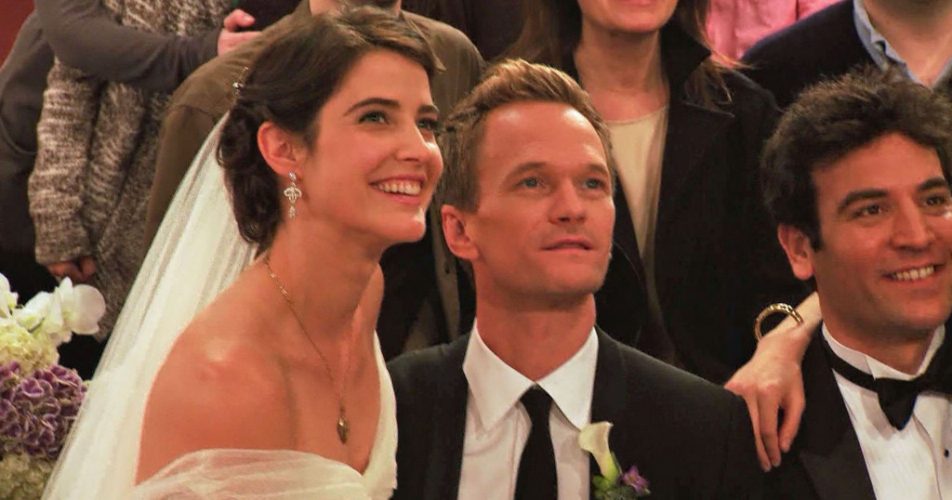
Some examples of the genius of the program are in a couple of episodes that I’ve personally handpicked. ‘Right Place, Right Time’ (2009) deals with the magic of circumstances, for instance, and in that, highlights the aforementioned wonder of destiny. It starts with Ted performing a series of normal activities: walking down the street with the iconic yellow umbrella, stopping at a newsstand to read a magazine, giving cash to the homeless man across the road, and stopping at a crosswalk. The episode then details, with beautiful precision, the reasoning behind every one of these seemingly everyday acts, in a way that make me think, about the supposed reasoning behind even the minutest of actions we commit as human beings.
‘Three Days of Snow’ is another particularly great episode, as it deals with Future Ted mixing up events in his past, as he probably would, to tell a sweet romantic tale in a twisted and thereby more improved manner. By messing with the timeline of the story, the writers developed a whole new way of keeping their audience asking for more, something they also quenched with their immaculate structuring. ‘Symphony of Illumination’ (2011) is yet another smart one, which shifts the narrative in a totally different direction with regards to the rest of the show.
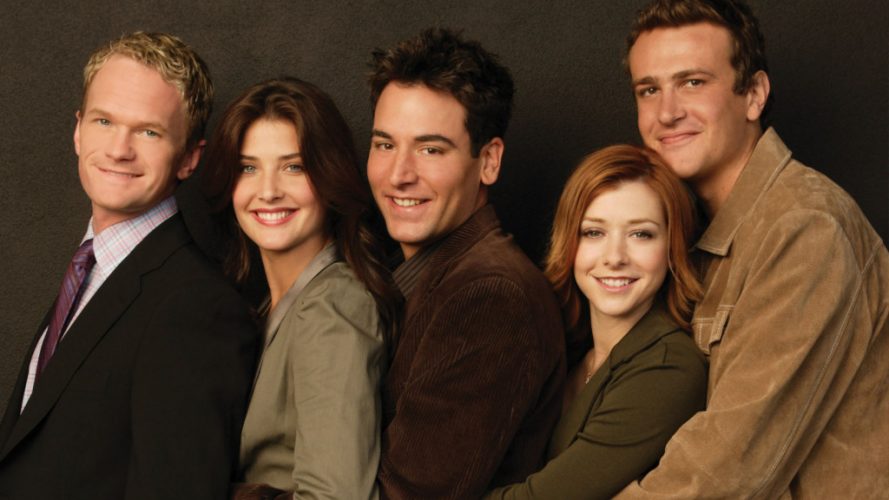
I guess my point with all this is that HIMYM did things differently, though it did have similarities to many sitcoms that came before it. These differences had mostly to do with the incorporation of style, using human factors of nostalgia, pain, hope, distrust, enjoyment, etc. to tell a story that was mostly heartwarming and intriguing.
When I say that, I mean the majority of the seasons were wonderful in how they got the story moving forward. Season one introduced the characters into our lives with such perfection, all thanks to the colorful characterization, soulful connection, and exciting storytelling patterns that the creators sought to establish, in order to give the show an edge that was all its own. Seasons two to five carried on this undeniable charm that the show had going for it, but then came the sixth, which, while being fun, didn’t introduce the greatest of characters. The show hit an all-time low with viewership during this season, but it thankfully built itself up by the final episode.
The seventh season is one that I feel gets too much hate. I love many of the episodes on there, and though I will agree that the season as a whole is different in tone from the rest of the show, the changes it had brought felt very calculated, and as an audience member, I was convinced well enough to welcome these wholly. The eighth, though, is where I began to sense a problem with the program; a downward spiral in terms of quality. The premiering episode of the season lacked creative strength, and it felt like lazy fan service to me. I do admit that even when I say this, I think one of the show’s greatest episodes lie in this season, going by the title of ‘The Time Travelers’. It’s a take away from the flow of narrative, sure, but its a beautiful one at that, because of the layers it adds to the protagonist, as well as the woman who is to be his future wife.
The ninth and final season clearly lacked the wit and charm that had made HIMYM stand out. The writing had weakened and the beloved characters weren’t so likable anymore. Each episode felt like an attempt to fill in the 22-minute runtime with problems that were over-emphasized for the sake of unfunny comedy, save for two or three (and this is coming from someone who claims to be an avid fan of the series). Though I was disappointed by most of the final season for being the cheap imitation of what was once a great show, I didn’t hate the ending as much as everyone else did.
SPOILERS AHEAD!
The (Alternate) Ending
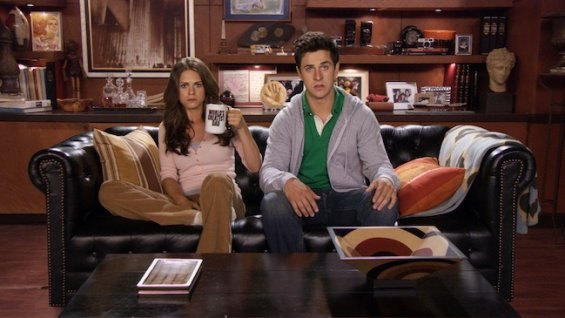
The original ending has the character of The Mother die, which had been a long-discussed possible theory by fans of the program. Ted’s goal in retelling the story of his life, keeping it as long as he did, ends up being to plead (sneakily) to his children and receive their acceptance to move on from the sad episode that had seemingly haunted him. The marriage of Barney and Robin, Ted’s close friends, hadn’t worked out since they wanted different things, and though the entire season had been built up around their compatibility, fate had it planned that it would end in divorce.
Leaving Robin single once again with only her dogs as comfort, Barney has some experiences in his life which makes him change for the better, or so we hope. Ted sees an opportunity to restart his romance with the divorcee since he was widowed and alone himself. His children are convinced by his story, and they tell him that it’s time for him to get back into the game. The final scene keeps the effervescent theme of nostalgia of the show alive as Ted walks up to Robin’s apartment building, grabs her attention, and as she looks at him from out her window, pulls out the Blue French Horn from behind – a symbol of their relationship. They share a happy glance at each other.
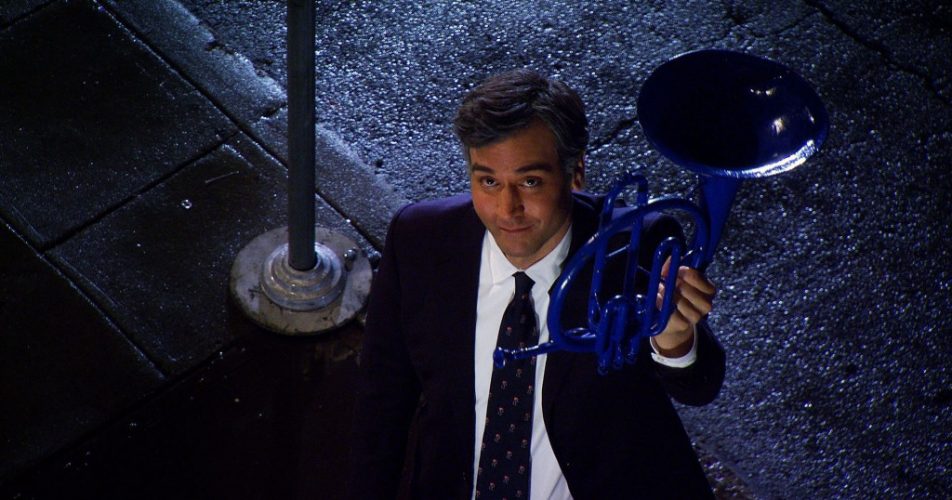
I like this ending because it’s different. Despite incorporating the death of Ted’s wife into the plot, I thought it was an interesting move to prioritize what the show was always really about: Ted and Robin. The whole story starts with how he met her, and there never really is a point when he stops loving her, now is there? In Sunrise, another episode from Season 9, there’s this surreal moment that signifies Ted moving on from Robin, but is that how life really works? Do you ever stop loving someone after that initial spark?
The show – or its characters (except Barney, at least up to a point) – seemed to idolize the idea of a soulmate. Someone who is perfect for you, with whom you click and become well aware of this. With this ending, the show both tramples on and enforces this belief. If the mother, Tracy McConnell, was the one for Ted, then why was it decided (by the Universe, for the sake of keeping with the show’s themes) that their relationship wouldn’t last? Since the show ends with Ted and Robin possibly getting back together, does that signify that it was always the two of them who were meant for each other? Perhaps Ted always loved Robin then, even when he was married to Tracy. Maybe that’s what the show is trying to say at the end, that no matter how hard individuals who are right for each other struggle to suppress their feelings, the universe always finds a way to get them together.
There’s something about this ending that feels bold. It brings up so many questions and is interesting in its attempt to take the hard way out. We don’t really guess out any of the final minutes, since the rest of the show anticipates and makes perfect the character of The Mother. Where the ending falters, then, is with its terrible, terrible, god-awful writing, as well as unconvincing performances. I find the ideas that the show wishes to present intriguing, but the way these ideas are presented leaves a lot to be completed.
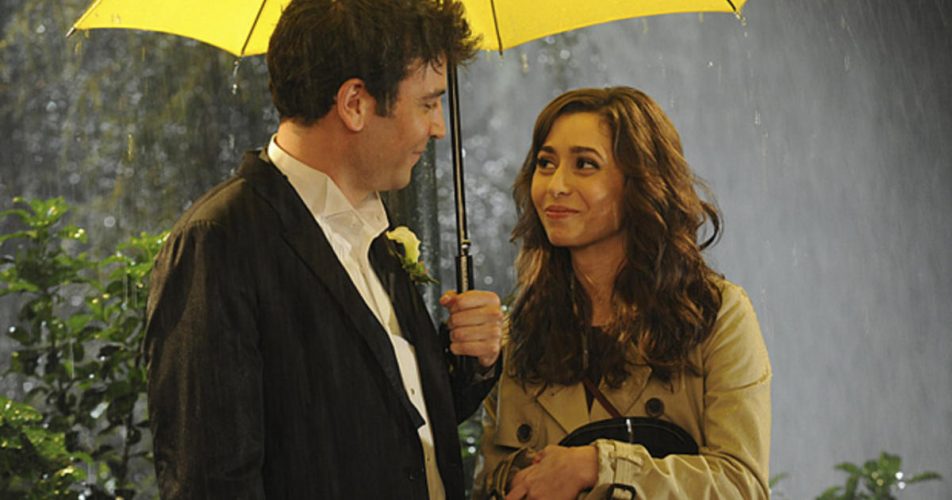
The alternate ending is simple and easy. The show ends with Ted actually meeting the mother, at the Farhampton station, and they have an adorable exchange of dialogues, after which Future Ted says the last lines of the show – the long-awaited “… and that kids, is how I met your mother.” Is it a bad ending? No, it isn’t. It enforces the idea of a ‘one true love’, is sweet, and has emotional value to it.
Final Word
Considering which ending I felt was more well-made, in terms of writing and performances, I’d definitely choose the alternate over the original. That being said, I like the propositions of the original more. I find myself having nothing to say about the ending that was highly favored because though it ended the show, it didn’t do anything more. The original still makes me think, and that is where it ultimately succeeds.
Read More in Explainers: Dexter | The Sopranos | Westworld


You must be logged in to post a comment.